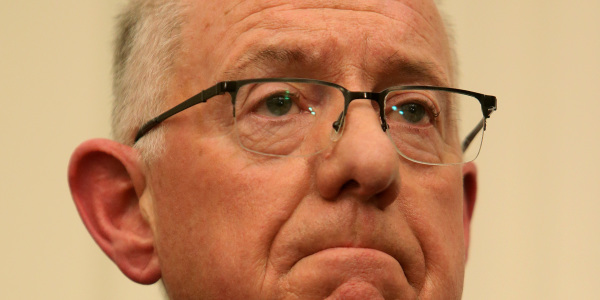Foreign Affairs Minister Charlie Flanagan has clashed with Northern Ireland Secretary Theresa Villiers over the future of the Irish border in the event of a Brexit.
In the Dail, Mr Flanagan said frontier controls would not be decided by London and Dublin alone if Britain voted to take itself out of the European Union.
“The outcome would be the result of a wider negotiation involving all of the EU and therefore no-one can say with certainty that nothing will change with the border if the UK votes to leave,” he said.
His remarks will be seen as a rebuke to claims by Ms Villiers at the weekend that border arrangements between Northern Ireland and the Republic of Ireland would not have to change in the event of a Brexit.
Ms Villiers said the land border would remain as “free-flowing” as it was today because of a special status for Irish citizens in the UK as well as the common travel area which pre-dates EU membership by both countries.
The senior Tory minister also attacked suggestions that Brexit could threaten the peace process as “scaremongering of the most irresponsible and dangerous kind”.
But Mr Flanagan warned the “practically invisible border is a major symbol of normalisation and development in north-south relations”.
“Any implications for the current border arrangements would only arise if the UK voted to leave and, in that event, their future would depend heavily on the terms and conditions of a new relationship between the UK and the EU,” he said.
“In other words, the border’s destiny would not be determined by the sole wishes of the Irish and British governments.”
Mr Flanagan was speaking in the Dail, which set aside eight hours to discuss the implications for Ireland if Britain voted to leave the EU in the in/out referendum on June 23.
“In the event that the UK voted to leave the EU, customs posts would not of course be set up overnight,” he said.
“A negotiation period of two years or more would apply.
“Ireland would work hard with the UK and with our EU partners to avoid customs posts being established and to preserve the benefits of the common travel area as a whole.”
Mr Flanagan appealed for people at home and in the UK to get actively involved in the debate over the coming weeks.
